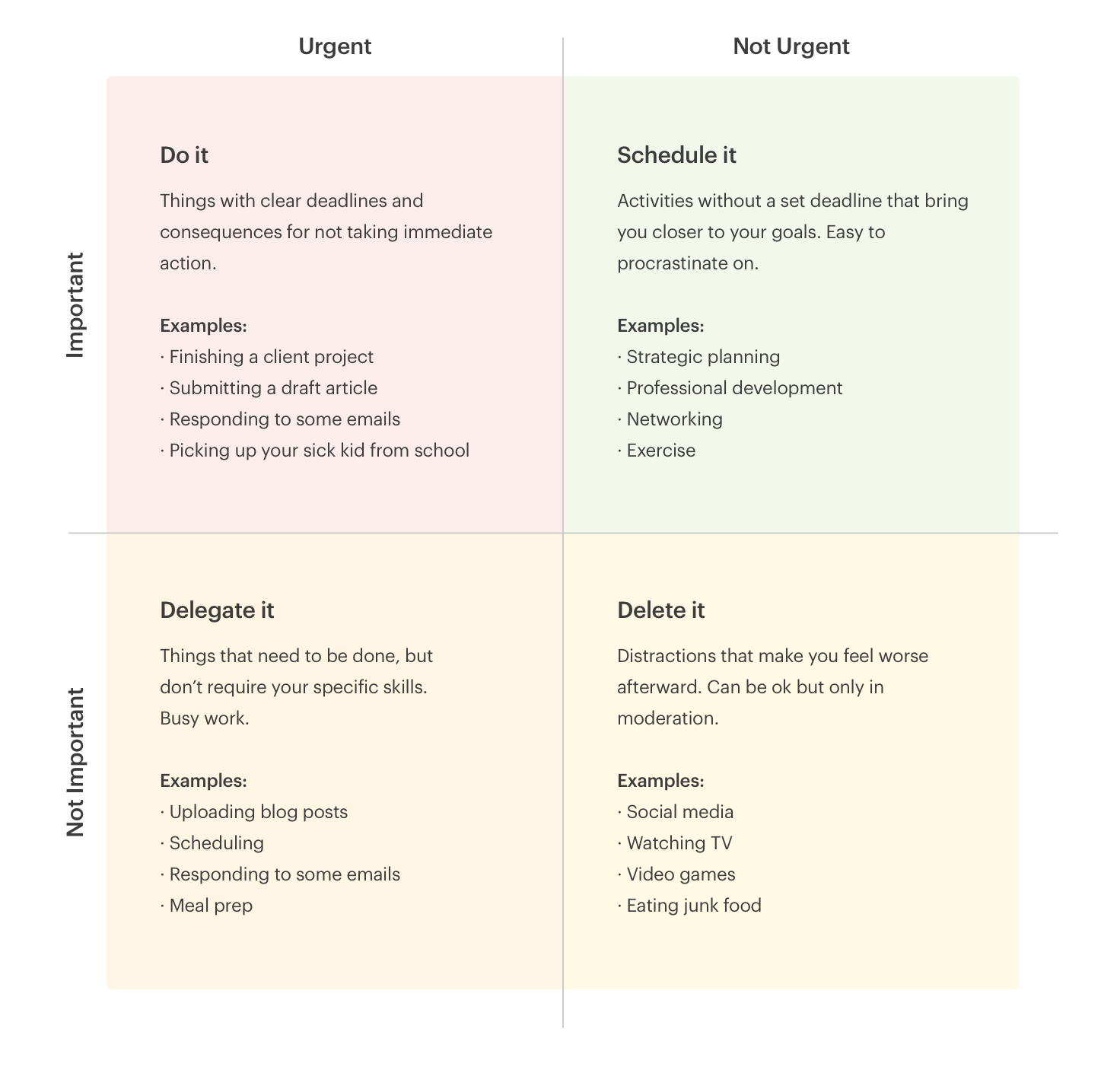Urgent vs important and goals context



Often, managing and prioritizing our tasks is not easy. Changing contexts, switching from "firefighting mode" (where we are dealing with whatever current crisis) and a more "strategic mode" where we are laying down the bricks for our longer-term objectives. There is a delicate balance that is important to manage or, at least, when we can't do otherwise, be aware of the problem.
Sometimes we get stuck too much on "firefighting mode" or just reacting and we lose the perspective. Eisenhower's urgent/important principle (or Covey Quadrants) may help to put things in perspective and regain awareness on the important topics where we should focus. Sometimes it is not enough on its own.
Let's see the definition of urgent and important:
- Important activities have an outcome that leads to us achieving our goals, whether these are professional or personal.
- Urgent activities demand immediate attention and are usually associated with achieving someone else's goals. They are often the ones we concentrate on and they demand attention because the consequences of not dealing with them are immediate.
What is important is seldom urgent and what is urgent is seldom important. -Dwight Eisenhower

At some point, we might also struggle with prioritization inside the "not urgent & important" which is key for our strategy achievement. If we check again the definition of important " ...leads us to achieve our goals". So, to prioritize those topics is indeed necessary that we have a clear set of goals.
If you want to know more about the principle and the matrix I recommend this site, also has a quick video: and the excellent Stephen Covey book: "The 7 Habits of Highly Effective People"
A clear goal list along with Eisenhower's matrix is a powerful way to improve our organization and personal productivity.
Putting too much of our energy and focus on the wrong quadrant can be draining and making us feel that there is no purpose in our effort. Being aware and creating rapport with yourself is fundamental to our personal wellbeing as well as for developing our leadership.
There is also a Tim Ferris sentence that I try to ask myself while doing priorization (maybe is not literal):
What is the ONE THING that I could be doing that will make the rest easier or irrelevant.
Sometimes, answer to that question is revealing.
Writing this short article was important to me because is getting me one step closer of my goal of developing a writing habit.